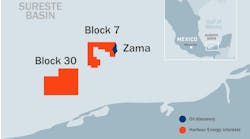New technologies enable the energy industry to access a bounty of oil and gas so large that worries about running out have melted away. And yet abundant and growing supplies have not eliminated the industry's complexity. New challenges such as industry consolidation, service sector growth, and workforce demographics dictate sustained investments in human capital to maintain competitive advantage.
Continued industry consolidation requires more sophisticated levels of financial and organizational leadership. Since service firms are increasingly taking risk positions in oilfield development and are forming direct relationships with national oil companies, leaders in this sector—along with the E&P firms with which they work—are being forced to increase their ability to assess risk, form alliances, and navigate in the global industry.
And the "great crew change" is occurring at a time when many firms lack sufficient younger talent to backfill the wave of baby boom generation retirees. This trend has created a "barbell" shaped workforce with a glut of inexperienced new hires and large numbers of experienced and aging senior workers on either end of the spectrum and a dearth of mid-level and emerging leaders in between.
These kinds of industry challenges demand new leadership skills. In response, many firms are beefing up their approach to leadership development, using some of these tools:
- Professionalizing the learning and development function - Many midstream and service sector firms are bringing in learning and development experts with sophisticated educational backgrounds and strong corporate or consulting experience.
- Learning from the industry - Increasingly, industry leaders and experts serve as credible instructors to orient, develop, and align new talent, particularly new potentials who come from outside the industry.
- Evolving content - Service sector firms in particular look at risk, alliances, and marketing differently than do operators. So, program content is being developed that serves the needs of this sector, particularly in the areas of financial risk assessment, merger and acquisition analysis, and business-to-business marketing.
Establishing a relationship with a university business school is another tool that oil and gas firms can use to help develop organizational leadership capabilities.
There are several reasons why firms should work with a university business school. These include:
- Access to research-based content that is true and tested
- Availability of purpose-built learning environments where participants can separate from the day-to-day business setting and feel free to think and behave in new ways
- Involvement of professional educators who are dedicated to building capability rather than dependence.
Some companies are reluctant to consider engaging with a university business school, believing that it will be too theoretical and academic, or too irrelevant and inaccessible for busy working managers. On the contrary, university business schools welcome the opportunity to work with companies. Schools benefit from this because they:
- Expand their relationships in business, government, non-profit communities
- Enhance their reputations
- Disseminate new research findings
- Identify student opportunities
- Provide faculty opportunities to work with experienced practicing managers on real and current business problems.
However, working with a university is not like working with a training vendor. When working with a business school, firms should adopt these five key success factors to maximize the benefits of the relationship.
- Select a partner who shares your vision and fits with your organization's culture. When firms recognize that they choose to work with a university because of its subject matter expertise and skill in adult learning, the result is an atmosphere of question, challenge, and healthy dialogue based on mutual respect.
- Clearly articulate a business case for management development. For example, a firm's growth plan and projected retirements can reveal the number of managers and executives needed to achieve the plan and the number that need to be sourced with experienced people. This sort of analysis drives management development.
- Work with a proven curriculum model. In today's oil and gas industry, in order to be effective leaders, highly educated technical professionals must develop self-awareness, interpersonal discernment, organizational savvy, and the ability to serve multiple stakeholders inside and outside the organization.
- Blur the line between the classroom and workplace. When practices like leader-led instruction, executive dialogue, and company projects are part of the instruction, it is hard to define the line where the classroom ends and the workplace begins.
- Commit to using best practices that support on-the-job application of learning. These include high-level executives who serve as class advisors and mentors to individual participants, peer accountability among participants for application of program content, and support of participants' supervisors and management.
Using these best practices in academic partnership will help oil and gas firms maximize the value of their relationships with university business schools. They will help firms upgrade their learning and development functions and secure a larger and more sophisticated flow of future leaders.
Frank Lloyd
Associate Dean, Executive Education
Southern Methodist University Cox School of Business
This page reflects viewpoints on the political, economic, cultural, technological, and environmental issues that shape the future of the petroleum industry. Offshore Magazine invites you to share your thoughts. Email your Beyond the Horizon manuscript to David Paganie at[email protected].


